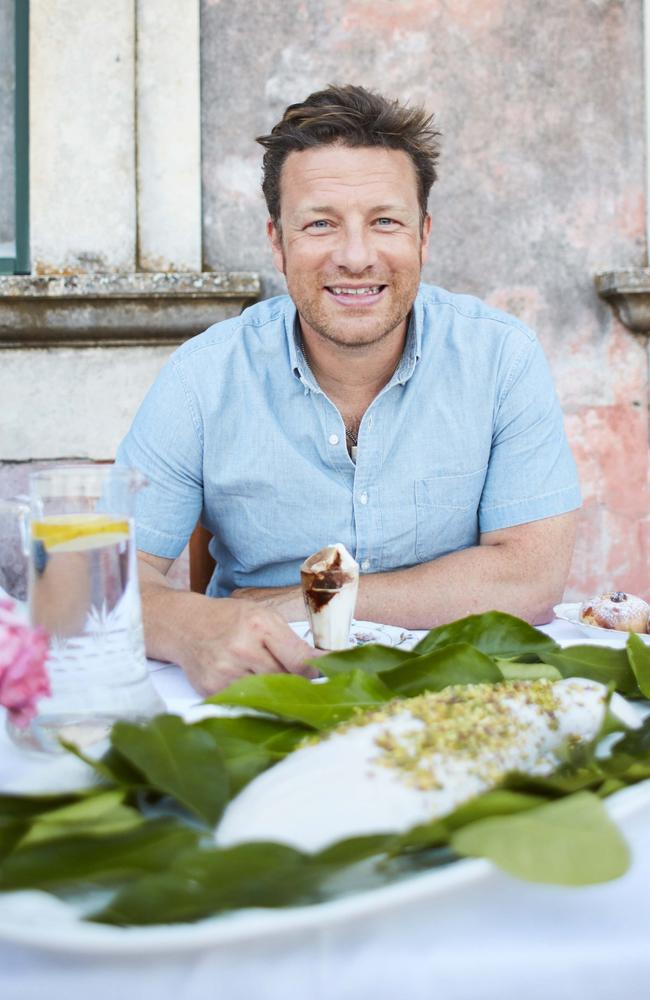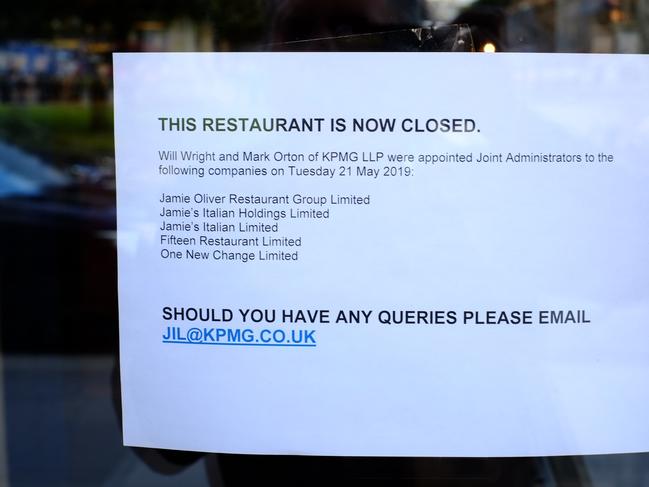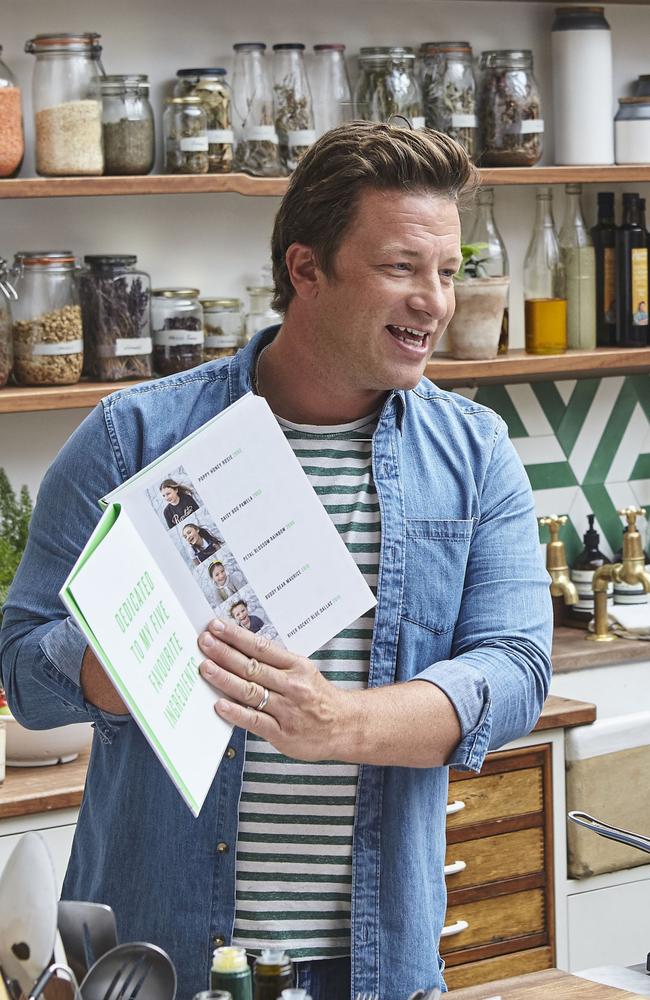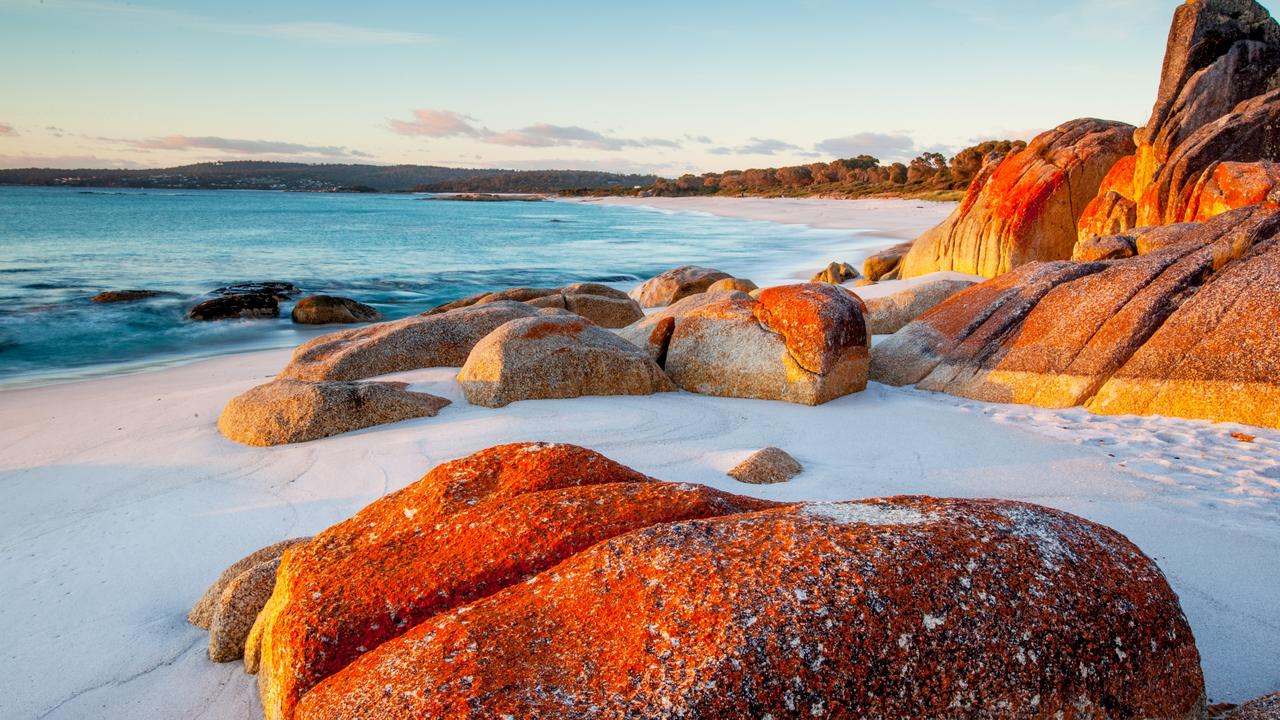Jamie Oliver UK business collapse: Where the future of his Australian restaurants lies
The collapse of celebrity chef Jamie Oliver’s UK business has sent shockwaves around the globe. This is what Aussie fans can expect at his eateries in Sydney, Brisbane, Adelaide and Perth.

Companies
Don't miss out on the headlines from Companies. Followed categories will be added to My News.
The collapse of celebrity chef Jamie Oliver’s UK business has sent shockwaves around the globe.
But local fans can still eat at his restaurants in NSW, Queensland, South Australia and Western Australia, despite what’s happened overseas.
Oliver’s chain of Jamie’s Italian Australia eateries were bought out by the Brisbane-based Hallmark Group last year.
A spokeswoman from the Hallmark Group told News Corp Australia today that they will still continue to operate as normal.
In a statement today, the Group wrote: “We are saddened to hear about the Jamie’s Italian UK business going into administration.
“The problems are isolated to the UK business.
“Jamie’s Italian Australia will remain trading as usual under the Australian owner and operator Hallmark Group Holdings.

“The Perth, Brisbane, Sydney and Adelaide Jamie’s Italian Australia venues are all unaffected.”
The spokeswoman also told News Corp: “The Australian venues will continue to use the same brand name and menus, nothing will change in the international arm of the Jamie’s Italian businesses.
“According to the website there are restaurants in 20 other countries outside of the UK, that as we understand are all open and not impacted by the UK business.”
She also said that Oliver, 43, will still be involved with the Jamie’s Italian Australia restaurants.
“Jamie’s ongoing involvement is based around menu development,” she confirmed.
His menu contains a lot of dishes inspired by him, which include pasta.
With his often simple but inventive dishes, the British chef Jamie revolutionised home cooking for his compatriots.
Oliver’s restaurant group, comprising 25 outlets across Britain, collapsed Tuesday with the loss of 1,000 jobs, leaving him “devastated”.
Administrators KPMG were appointed to run the chain and close all but three of its 25 restaurants.
Oliver’s fresh looks, messy hair, scooter riding and relaxed banter has earned him many fans around the world who watch his television shows and bought his books in their millions.
The multi-millionaire, had cooking in the veins. He grew up in the village of Clavering in Essex, eastern England, where his parents ran a gastropub and he had his first attempts at cooking in the kitchens.
In 2002, he sunk a large chunk of his fortune into creating Fifteen, a London restaurant staffed with disadvantaged youngsters. The project was chronicled in the documentary series Jamie’s Kitchen.

Promoting a healthy and balanced diet, with fresh and well-sourced products, he went to war with junk food in 2005, lashing out at the burgers, fries, and lack of fruit being dished up in school canteens in the TV series Jamie’s School Dinners.
“We are killing our children” with junk food, said the father of five, who married his childhood sweetheart Juliette Norton in 2000.
He campaigned for a tax on sugary soft drinks — something the British government introduced in 2018 — and for junk food adverts to be banned on television before 9:00pm.
But for all his popularity, Oliver has been no stranger to controversy. He is regularly criticised for attacking the processed foods that the poorest in society can afford, and for his tie-ups with big supermarket chains, such as Sainsbury’s from 2000 to 2001 and Tesco from 2018.
Oliver was accused of Jamaican cultural appropriation in August last year for calling a new product “punchy jerk rice”.

Oliver continues to make significant profits from books and products bearing his name.
In 2017, the tide began to turn for his restaurants and he was forced to close a dozen Jamie’s Italian outlets, launched nine years earlier.
Simon Mydlowski, a partner at Yorkshire law firm Gordons and an expert on the hospitality industry, said Jamie’s is the latest brand that has failed to keep pace in a rapidly changing sector where a business needs to keep evolving.
“A number of suppliers will have been caught unawares here, perhaps showing a little too much trust in the Jamie Oliver name, but this is not the first big restaurant chain to have suffered and it won’t be the last,” he said in a statement.
“Faced with higher rent, rising food prices and increased competition, restaurants need a point of difference — it’s no coincidence that smaller brands with the freedom and flexibility to keep things fresh are currently the ones performing well.”
Originally published as Jamie Oliver UK business collapse: Where the future of his Australian restaurants lies


